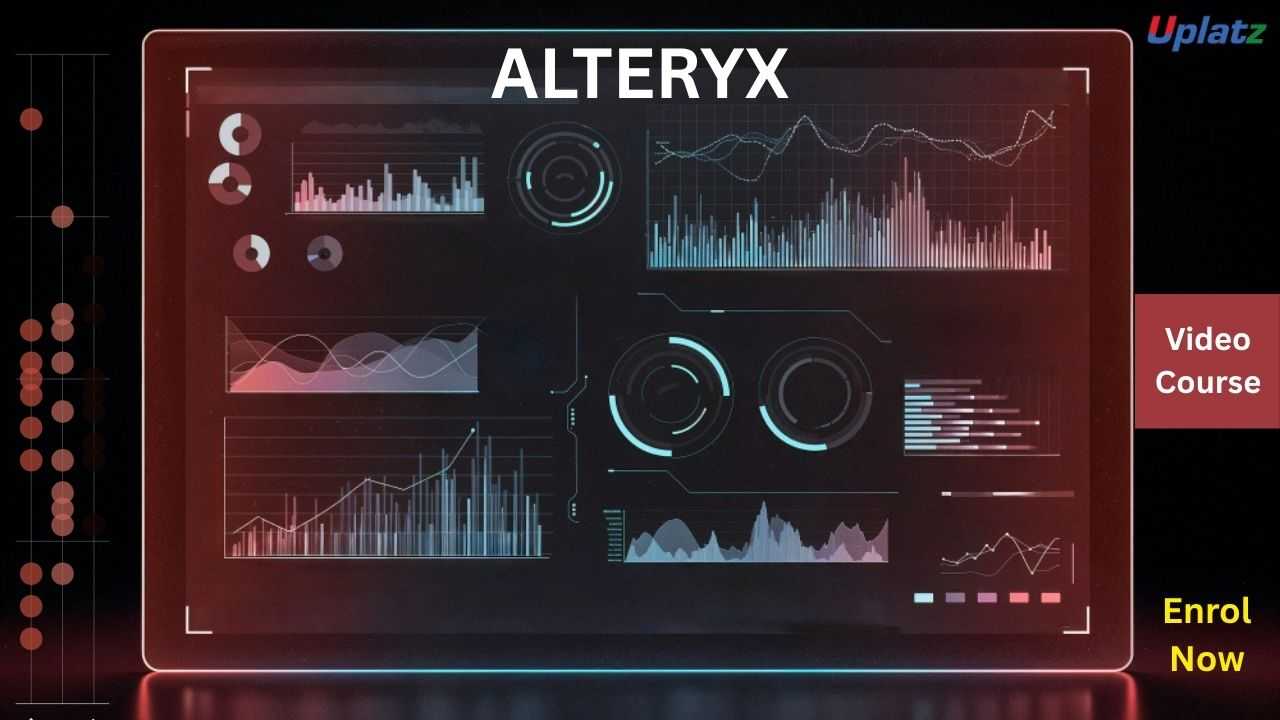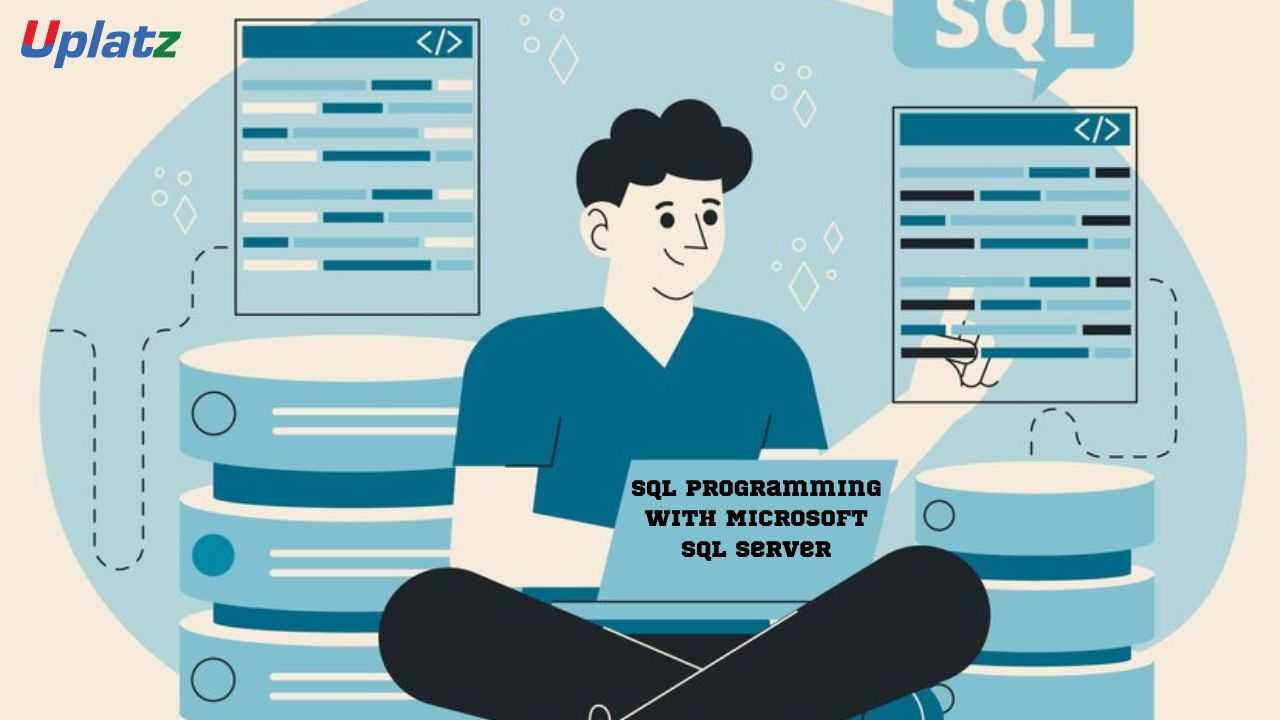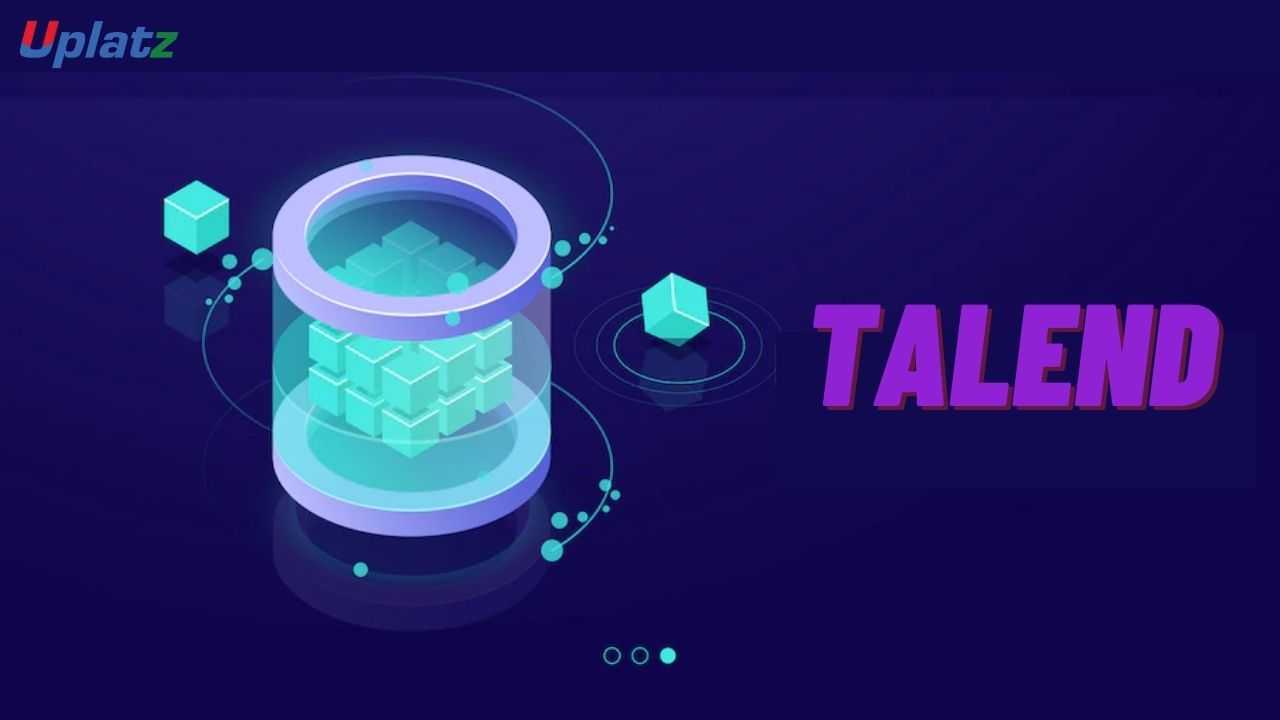Cassandra
Learn Cassandra for High-Performance NoSQL Data Management – Distributed Architecture, CQL, and Real-Time Big Data ApplicationsPreview Cassandra course
Price Match Guarantee Full Lifetime Access Access on any Device Technical Support Secure Checkout Course Completion Certificate 91% Started a new career
BUY THIS COURSE (
91% Started a new career
BUY THIS COURSE (GBP 12 GBP 29 )-
 81% Got a pay increase and promotion
81% Got a pay increase and promotion
Students also bought -
-

- Alteryx
- 10 Hours
- GBP 12
- 10 Learners
-

- SQL Programming with Microsoft SQL Server
- 55 Hours
- GBP 29
- 5739 Learners
-

- Talend
- 20 Hours
- GBP 29
- 117 Learners

Cassandra: Master Distributed NoSQL Database Systems – Self-Paced Online Course
Cassandra is one of the most powerful and widely adopted NoSQL database platforms in the world. Designed to handle massive volumes of data in real-time across multiple nodes with no single point of failure, Cassandra enables businesses to build scalable, fault-tolerant, and highly available applications. This self-paced, hands-on course is tailored to help you master Cassandra from the ground up, regardless of your prior experience with NoSQL databases or distributed systems.
Whether you're a data engineer, software developer, DevOps professional, or system architect, this course provides a comprehensive and structured learning path that will equip you with the knowledge and practical skills to build and manage high-performance applications using Cassandra. With increasing demand for real-time analytics, IoT data ingestion, and geo-distributed applications, Cassandra expertise is becoming a highly valuable asset in today’s data-driven job market.
The course begins by introducing the fundamentals of NoSQL databases and how Cassandra differs from traditional relational database management systems (RDBMS). You'll gain a deep understanding of when to use Cassandra and its key benefits, including high scalability, decentralized architecture, and write-optimized performance. You will learn how Cassandra handles data replication and consistency using tunable consistency levels, partitioning, and gossip protocols, which are crucial for maintaining performance and availability across distributed clusters.
From there, you’ll dive into the architectural backbone of Cassandra. You’ll learn about nodes, rings, virtual nodes, partitions, SSTables, memtables, and compaction strategies. These concepts are critical for anyone working with large-scale, fault-tolerant data systems and will help you make informed decisions when deploying or managing Cassandra clusters.
Hands-on practice is a core part of this course. You’ll learn to install and configure Cassandra on your local machine as well as in cloud and containerized environments. With the help of Docker, Kubernetes, and cloud providers like AWS, you’ll be able to set up production-ready Cassandra clusters. The course includes guided labs and projects that walk you through creating your own cluster, adding nodes, and simulating replication and failure scenarios.
You’ll also become proficient in CQL (Cassandra Query Language), the primary interface for interacting with Cassandra databases. While CQL resembles SQL in syntax, it is designed specifically for Cassandra’s distributed, denormalized data model. You’ll practice creating keyspaces, tables, inserting and retrieving data, applying filtering and indexing, and working with advanced data types such as collections (sets, maps, and lists), counters, and user-defined types (UDTs).
One of the most critical aspects of Cassandra development is data modeling, which differs significantly from traditional relational modeling. This course teaches a query-first approach, focusing on designing tables that match access patterns rather than normalization. You’ll learn how to use partition keys, clustering columns, and composite keys effectively. Case studies include modeling scenarios for e-commerce platforms, telemetry data, social media feeds, and time-series applications.
Beyond development, this course covers essential topics for Cassandra administration and performance tuning. You’ll explore how to monitor cluster health, manage compaction and repair processes, configure backup and restore strategies, and tune parameters for optimal throughput. You'll work with tools such as nodetool, JMX metrics, and monitoring dashboards via Prometheus and Grafana to ensure your Cassandra nodes and clusters are always performing at peak efficiency.
For enterprise applications, understanding consistency levels and replication strategies is crucial. The course explains how Cassandra ensures data durability through eventual consistency and how to balance consistency, availability, and partition tolerance (CAP theorem). You'll learn when to use consistency levels like ONE, QUORUM, or ALL, and how replication factors affect data redundancy and availability.
The final modules focus on real-world application scenarios, cloud deployments, and integration with other big data technologies. You’ll explore how Cassandra integrates with Spark, Kafka, and Flink for real-time analytics and stream processing. You'll also learn how to deploy and scale Cassandra on Kubernetes clusters using stateful sets and operators.
By the end of the course, you will have a solid understanding of both the theoretical and practical aspects of working with Apache Cassandra. You’ll be able to install and maintain clusters, design and query data using CQL, model real-world systems using best practices, and optimize performance for large-scale, production-level deployments.
You will also complete a set of projects and exercises that simulate real use cases, allowing you to build a portfolio of Cassandra work you can showcase to potential employers. These hands-on tasks will reinforce your skills and help you prepare for technical interviews, certification exams, and professional roles requiring NoSQL proficiency.
The course concludes with a Certificate of Completion, signifying your ability to independently work with Cassandra and contribute to distributed data infrastructure in modern organizations. This credential can enhance your resume, LinkedIn profile, or GitHub portfolio, positioning you as a valuable asset in companies leveraging big data and NoSQL technologies.
Whether your goal is to build resilient backend systems, power data-intensive applications, or become a sought-after data infrastructure expert, this Apache Cassandra course gives you the knowledge, tools, and confidence to succeed in today’s fast-evolving technology landscape.
Course/Topic 1 - Coming Soon
-
The videos for this course are being recorded freshly and should be available in a few days. Please contact info@uplatz.com to know the exact date of the release of this course.
This course is designed to build deep expertise in Apache Cassandra, covering everything from basic querying to production-grade deployments and optimizations.
By the end of this course, learners will be able to:
-
Understand the NoSQL ecosystem and Cassandra’s place within it.
-
Set up and configure Apache Cassandra on local and cloud environments.
-
Use CQL for creating keyspaces, tables, and executing queries.
-
Apply data modeling best practices in distributed environments.
-
Configure replication, partitioning, and consistency levels.
-
Optimize read/write operations and apply performance tuning strategies.
-
Monitor Cassandra clusters using native tools and third-party solutions.
-
Handle node failures, backups, and repairs for operational reliability.
-
Deploy Cassandra using Docker, Kubernetes, or cloud providers.
-
Design real-time applications that require scalability and fault tolerance.
Apache Cassandra – Course Syllabus
1. Advanced Data Modeling
-
Understanding partitions, clustering, and keys
-
Denormalization and query-based modeling
-
Handling time-series and IoT data
-
Data modeling best practices
2. Internal Architecture
-
Gossip protocol and peer-to-peer architecture
-
Partitioners, tokens, and data distribution
-
Memtables, SSTables, Bloom filters, and compaction
-
Read and write paths in detail
3. Query Optimization (CQL)
-
Advanced CQL queries and performance tuning
-
Using secondary indexes and materialized views
-
Avoiding full table scans and filtering pitfalls
-
Paging, lightweight transactions (LWT), and TTL
4. Cluster Management & Operations
-
Multi-node cluster setup and configuration
-
Adding/removing nodes and data rebalancing
-
Keyspace and replication strategies
-
Repair, cleanup, and compaction tasks
5. Performance Tuning
-
JVM tuning and garbage collection
-
Tuning read/write throughput and consistency
-
Monitoring disk, CPU, and memory usage
-
Understanding and tuning compaction strategies
6. Security & Access Control
-
Authentication and role-based access control (RBAC)
-
SSL/TLS encryption for nodes and clients
-
Audit logging and secure cluster configurations
7. Backup, Recovery & High Availability
-
Snapshot-based backups and incremental backups
-
Commit log archiving and disaster recovery
-
Node recovery, hinted handoffs, and anti-entropy repair
-
Ensuring zero downtime and fault tolerance
8. Integration & Tooling
-
Integrating with Spark, Kafka, and Flink
-
Using drivers (Java, Python, etc.) for application integration
-
Cassandra tools: nodetool, cqlsh, Reaper, Medusa
-
Monitoring with Prometheus, Grafana, and DataStax tools
9. Real-World Use Cases
-
Designing Cassandra for real-time analytics
-
E-commerce, financial data, and recommendation engines
-
Time-series and telemetry data storage
10. Certification & Interview Prep
-
Advanced Cassandra certification topics (DataStax / Apache)
-
Hands-on exercises and query tuning
-
Cluster debugging and high-availability scenarios
-
Interview questions on modeling, consistency, and ops
Upon successful completion of the Apache Cassandra course, learners will receive a Certificate of Completion from Uplatz, validating their ability to design, manage, and optimize Cassandra-based systems.
This certification affirms your technical skills in handling large-scale, distributed datasets and your familiarity with CQL, replication strategies, fault tolerance, and cluster maintenance. It can be showcased in your resume, LinkedIn profile, or portfolio as proof of your NoSQL expertise.
Whether you’re aiming to become a Data Engineer, Cassandra Developer, Site Reliability Engineer, or Backend Architect, this certification demonstrates your readiness to work with distributed, high-performance databases in production.
Proficiency in Apache Cassandra opens doors in many industries that demand real-time, high-volume data processing and high availability. Roles that frequently seek Cassandra skills include:
-
Data Engineer
-
NoSQL Database Administrator
-
Backend Developer
-
Site Reliability Engineer
-
Big Data Engineer
-
Cloud Infrastructure Engineer
-
DevOps Specialist
-
Solutions Architect
Companies in sectors like finance, e-commerce, telecom, social media, and logistics heavily rely on Cassandra for applications requiring low latency, high availability, and massive scalability.
Apache Cassandra is a distributed NoSQL database designed for scalability, high availability, and fault tolerance without compromising performance.
Cassandra uses a schema-less, decentralized model with eventual consistency, whereas RDBMS rely on strict consistency and centralized architecture.
A keyspace is the outermost container for data in Cassandra, similar to a database in RDBMS.
Gossip is Cassandra's peer-to-peer communication protocol that helps nodes exchange information about cluster state.
Data is replicated across multiple nodes using replication strategies like SimpleStrategy or NetworkTopologyStrategy.
It defines how many nodes must acknowledge a read or write operation before it is considered successful (e.g., ONE, QUORUM, ALL).
Modeling is query-driven. Tables are designed to suit access patterns with denormalization and compound keys.
SSTables (Sorted String Tables) are immutable disk files used for storing data in Cassandra after flushing from memory.
A tombstone is a marker indicating that a record has been deleted. It’s used during compaction and consistency checks.
Yes. Cassandra can be deployed on cloud platforms and managed services like DataStax Astra and Amazon Keyspa









